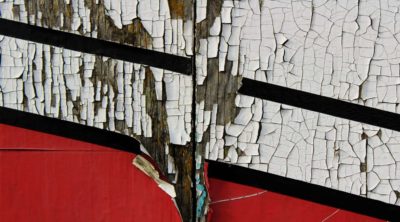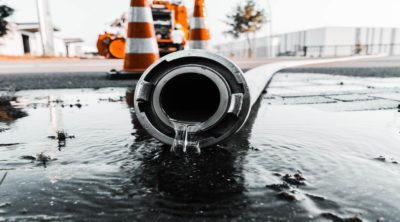Could you be the victim of drywall water damage without even realizing it? Truth be told, most mold and mildew problems start out small. So, how do the pros find a leak and what can you do to stop it fast? We thought you’d never ask.
What causes drywall water damage?
A wide variety of things can cause water damage on drywall. Most commonly, it’s the result of leaky pipes or flooding. However, your home’s drywall can become saturated with moisture in many different ways. In fact, even a small splash can make a big impact.
Even worse, hidden leaks can be extremely dangerous, not to mention damaging to your wellbeing. That’s because festering water can lead to preventable illnesses and respiratory problems if they’re not caught in time. Professional mold remediation may become necessary if the problem persists.
How can you stop it?
You can stop a small water leak pretty easily, and tiny spots of drywall can be quickly replaced. Still, the key is to find and fix the issue before it gets out of hand. Larger leaks and widespread drywall water damage can be tough to repair.
Prevent a mess by taking the proper steps. Take the proper steps by paying attention to your home. And pay attention to your home by following these five simple guidelines:
- Look for the signs of a leak. That includes everything from mysterious sounds and stains to foul smells and soft spots.
- Fix the water first. Otherwise, you’ll be replacing the wet drywall until the cows come home.
- Check your utility bill. If it’s higher than usual, it could mean you have a water leak that you don’t know about.
- Cut out the culprit. That way, the moisture on your drywall doesn’t cause mold or spread to other areas of your house.
- Call an expert if the situation becomes too complicated because DIY can sometimes do more harm than good.
Remember, professional plumbing companies can hunt down and fix your most complex drainage problems. However, they’re not always prepared for mold remediation or pest control. In other words, preventative maintenance goes a long way.
When to call an expert for drywall water damage repair
Your drywall can still get wet even if you’re the most proactive homeowner in the world. Sometimes, a water leak happens unexpectedly or as a result of unseen damage from pests and nature. Over time, those tiny, undiscovered problems can start to add up to something big. So, responsible people typically call in the experts for a plumbing inspection at least once every 2-3 years.
Keep in mind that two or three years of even a small water leak can spell disaster for your drywall. Prevent massive damage by seeking help if you find the following things:
- Mold
- Mildew
- Drooping ceilings
- Unsturdy beams
- Pests
DID YOU KNOW: It only takes 15,140 drops of water to equal a gallon. That means it takes about 4.5 hours for an active leak to make a huge impact on your drywall.
The takeaway
Stop leaks from causing serious drywall water damage. Recognize the signs of a problem, practice preventative maintenance, and call in the experts when they’re needed.


